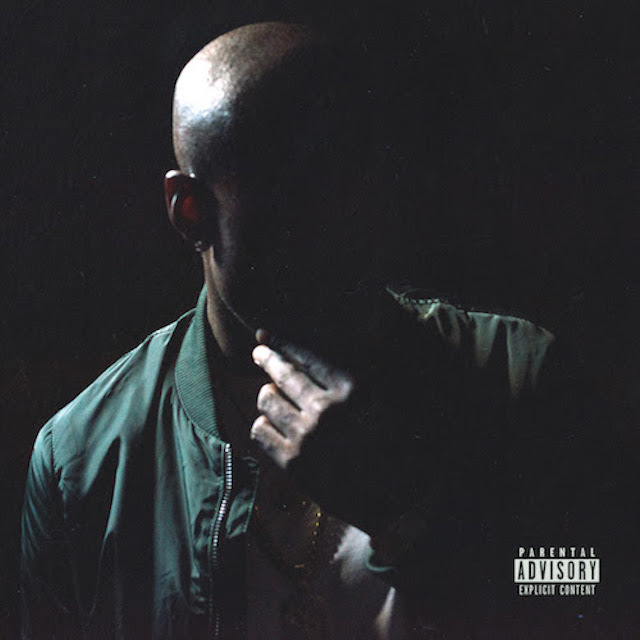By Aman Bhardwaj (Contributor) – Email
Coming off of 2014’s critically acclaimed Piñata, Freddie Gibbs has returned with a third album, one that is much darker and more aggressive than its predecessor. Shadow of a Doubt is a record that explores the themes of trust, poverty, drugs, gangs, and ultimately the trials and tribulations of life in crime-infested streets.
In direct contrast to the soulful production curated by Madlib on Gibbs’ Piñata, Shadow of a Doubt is incredibly gritty and hard-hitting, which is supported by the graphic and realistic imagery Gibbs displays on his verses throughout the album. His rapping ability and technique are as sharp as ever, his verses always flowing in sync with the production. Together, these elements add to the heightened sense of paranoia on the record, as the circle of people Gibbs can trust becomes smaller and smaller with the passage of time. Stuck in a cesspool of cocaine, sex, weapons, and street gangs, Gibbs is surrounded by forces that are acting against him. Gibbs’ narrators focus and fixate on the concepts of wealth and drugs, both threatening to destroy his relationships with his family members, girlfriend, and daughter.
Tracks such as “Insecurities,” “Forever and a Day,” and “Rearview” are great examples of Gibbs’ storytelling ability and how he is able to paint detailed images of the obstacles he has faced in his life. On “Forever and a Day,” he raps, “I can’t even look my own momma in the eyes / Kicked out through the front door / She said the way a nigga livin’, if I die, she won’t be surprised / Tears on the Bible, she prayed for me / This can’t be the life that she made for me.” It is no secret that his soul as well as his outlook are both damaged as he attempts to navigate through the problems in his life.
“Extradite” explores the harsh realities of the street life as well as the mass incarceration of African Americans. This track features two stellar, thought-provoking guest verses from one of the most underrated lyricists in hip hop, Black Thought (frontman for the Roots).
Both artists refer to the devil as the one who “extradites” or destroys African Americans through the implementation of prison systems across the country. The devil in this song has many meanings, and Gibbs is fully aware of this figure, with lines such as, “Option was that minimum wage, live in a cage / Buildin’ a prison every day, man they cultivatin’ these slaves,” and then goes on to state, “If the devil die today, I’mma treat it like it’s a holiday.” Black Thought supports these statements with his own views: “They catch so many casualties, it’s like war / That’s the reason I don’t believe in the hype y’all / The devil talkin’ ’bout, he wanna extradite y’all / Now I’m the nigga, he shinin’ the searchlight for.” Black Thought ends his verse with a self-reflection: “Writing a life sentence, sirens, fire engines / Tyrants, seen through the eyes of the wide lenses / Senseless crimes, cause some of us want to drive Benzes.”
The production and the complex verses from both artists allows listeners to fully understand the constant anxiety, pressure, and racism that many African Americans have to suffer through on a daily basis in the impoverished neighbourhoods of America. This is the album’s centrepiece, as it showcases the chemistry between both artists and paints a vivid image of racism, prison systems, and black-on-black crime in America.
The second half of the album, particularly the tracks “10 Times” and “Lately,” are just bits of filler that contribute nothing to the album itself, as they seem to go against the main themes already established in the narrative of Gibbs’ tumultuous life in the streets. “10 Times,” featuring Gucci Mane and E-40, delves into a braggadocious debate about women, which just seems uninspired and does not fit well in the context of this album. “Lately,” on the other hand, explores subject matter that has been covered already in the tracks prior to it. These tracks disrupt the flow in the narrative and themes of the record, but it picks back up again with “Basketball Wives.”
While it may not be on par with Piñata, Shadow of a Doubt is an otherwise solid and introspective record that finds Freddie Gibbs rapping over gritty and haunting production, while demonstrating the variety of flows he has in his arsenal. Gibbs showcases his remarkable storytelling ability and continues to remind everyone that he is one of the few credible gangster rappers remaining in today’s generation of hip hop.



